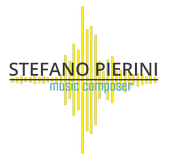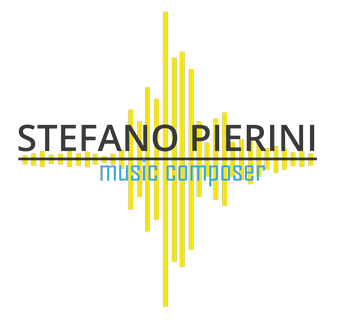
ULTRAVOX I for doublebass and electronics
(‘Le théâtre et son double’, Antonin Artaud)
This composition is part of a cycle for solo instruments and electronics on its way of realization, the parts of which are all identified by the title ULTRAVOX and characterised by the fact that they are dedicated to a particular figure of the culture of our times with whom I have a specific bond.
Each one of them has in common with the others the ground concept: the music materials are gathered from recordings of the actual voice of the subject of the piece and, through sound analysis and de-composition of some fragments, they are rethought and reworked by means of the electronics and put in dialectic communication with the instrumental matter.
In the case of ULTRAVOX I the voice is Antonin Artaud‘s and, in a more specific way, the recording of his final work ‘Pour en finir avec le judgement de dieu’ which represents the final and highest synthesis of his conception that should have been broadcasted on the 1948 but it was censored just before the emission (the first public presentation was made some fifty years later…).
My research though is not very much oriented to the semantic level of the chosen fragments, which ‘speak for themselves’, but more towards the expressive-acoustic components of the voice and thus the instrumental and electronics processing are oriented to the amplification of its internal energy; from that a new context is developed where that ‘ultra-voice’ of the title comes alive.
I have used different editing techniques for the electronics but the most relevant raw sound material is derived from Artaud’s voice and from the doublebass of Francesco Platoni Tag’ class=’francesco-platoni-en’>Francesco Platoni with whom I have worked tightly about the performing techniques and, in general, the instrumental approach.
The text I have chosen comes from, as said, ‘Pour en finir avec le jugement de dieu’ and more precisely from the last section ‘Conclusion’ where Artaud’s conception reaches the strongest tension and where he offers the extreme compendium of his philosophical-existential vision.
TEXT
L’homme est malade parce qu’il est mal construit.
L’homme, est un animal érotique, il a en lui un tremblement inspiré, une espèce de pulsation productrice de bêtes sans nombre
que les anciens peuples terrestres attribuaient à dieu.
Cela faisait ce qu’on appelle esprit.
La cruauté, c’est d’extirper par le sang et
jusqu’au sang dieu, le hasard bestial de l’animalité inconsciente de l’homme, partout où on
peut le rencontrer.
Vous délirez, monsieur Artaud. Vous êtes fou.
Je ne délire pas.
Je ne suis pas fou.
Je vous dis qu’on a réinventé les microbes afin d’imposer une nouvelle idée de dieu.
Riez tant que vous voudrez,
mais ce qu’on a appelé les microbes c’est dieu.
L’homme…
Lorsque vous lui aurez fait un corps sans organes, alors vous l’aurez délivré
et rendu à sa veritable liberté.
——–
Man is sick because he is badly constructed.
Man, is an erotic animal, he has in him an inspired shudder, a kind of pulsation that produces animals without number that the ancient tribes of the earth attributed to god.
This created what is called a spirit.
Cruelty means eradicating by means of blood and until blood flows, god, the bestial accident of unconscious human animality, wherever one can find it.
You are raving, Mr. Artaud. You are mad.
I am not raving.
I am not mad.
I tell you that they have reinvented microbes in order to impose a new idea of god.
Laugh if you like,
but what has been called microbes is god.
Man…
When you will have made him a body without organs,
then you will have delivered him and restored him to his true freedom.



